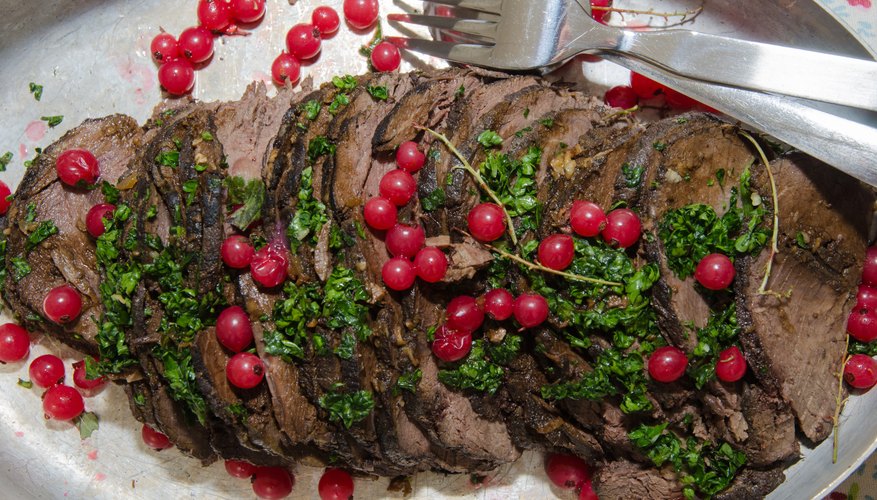
Wild game is a healthy, delicious alternative to domesticated meats such as beef, pork and lamb. Most wild game is lower in saturated fats than domesticated meats and higher in heart-healthy polyunsaturated fats. Some wild game such as bear meat is higher in iron than domesticated beef. With their unique flavors and high nutritional values, wild game meats are an excellent addition to your diet.
Elk
Elk, in its natural state, is not treated with any chemicals or growth hormones. It is low in fat, with 1.5 grams per 100-gram serving. Elk has 23 grams of protein and about 115 calories in each serving. A 100-gram serving has 55 milligrams of cholesterol and provides 2.2 milligrams of iron.
Bear
Bear contains 20 grams of protein per serving and is higher in fat than elk, at 8.3 grams per 100-gram serving. A serving provides approximately 160 calories. Bear has 98 milligrams of cholesterol per 100-gram portion and 10.73 milligrams of iron.
Buffalo
Buffalo provides approximately 20.2 grams of protein per 100-gram portion, with 2.4 grams of fat and about 143 calories. It provides 82 milligrams of cholesterol and 2.6 milligrams of iron per serving.
Healthiest Meat
Your nutritional needs will dictate which of the three meats is healthiest. Bear meat is highest in iron and lowest in cholesterol, but also has the greatest fat content. Both elk and buffalo are low in fat and comparable in iron and protein. In the end, taste may be the deciding factor in your choice.
References
Writer Bio
Jean Bardot is a freelance writer and natural health practitioner. She started writing in 1994 and has contributed articles to publications such as "Similimum" and the "IFH Journal." She has a Bachelor of Science in public health from the University of North Carolina and a Master of Science in holistic nutrition from Clayton College of Natural Health.



